Graham Reid | | 9 min read
Benmont Tench: Wobbles
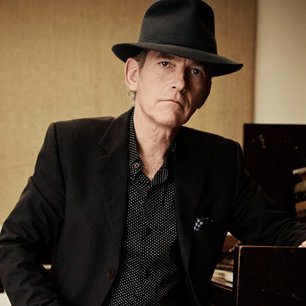
Benmont Tench has considerable history. He was a teenage fan in Florida of a local group called Mudcrutch whom he saw, fell in love with, went to their shows and eventually joined them as their keyboard player.
When Mudcrutch broke up in '75 he, founding member Tom Petty and guitarist Mike Campbell – by then in California – formed Tom Petty and the Heartbreakers and the rest of that story is rock'n'roll history.
But outside of that band, Tench who is now 61, played scores of recording sessions for other artists including Bob Dylan, Stevie Nicks, Johnny Cash, John Fogerty, Lucinda Williams, Elvis Costello, Ringo Starr, the Rolling Stones, Ryan Adams, Neil Diamond . . .
It's a very long list.
“If somebody calls me do a session,” he says, “the Heartbreakers alway come first. But there was a time, especially in the Nineties, when I was working five days a week, for weeks on end, largely with [producer] Don Was.
“That was terrific and through Don I met Ringo. Don called me one day and said, 'Ringo and I are going to fly up to Merle Haggard's house to do some recording' and asked if I wanted to come.”
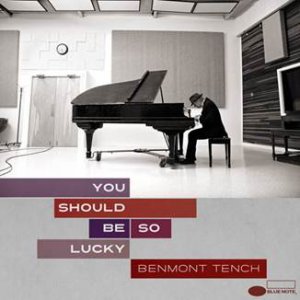 And that's how Ringo ends up banging
tambourine on one song on Tench's first ever solo album You Should Be
So Lucky(reviewed here).
And that's how Ringo ends up banging
tambourine on one song on Tench's first ever solo album You Should Be
So Lucky(reviewed here).
There are a few other famous friends on it – Gillian Welch, David Rawlings, Ryan Adams, Ethan Johns (son of the album's producer Glyn), Petty and Was – but mostly the album is lowkey and intimate with a profound Dylan influence in some of Tench's lyrics. And there are two covers, the traditional Corrina Corrina (which Dylan sang back in the early Sixties) and Dylan's Duquesne Whistle.
You have to wonder why it took Tench so long to get around to a solo album, but then again with all that session work he was busy.
I want to talk about the album obviously but briefly, you mentioned how busy you were in the Nineties and you played with friends, and friends of friends of I suppose. Have you often done sessions where you've walked in to work with someone you haven't met?
Usually I haven't met them actually. Very frequently, although more and more I play with friends who I've known before, or the producer will be a friend. And some of the other musicians if I don't know the main artist.
When I first worked with Stevie Nicks we were working on pre-production for her record and I hadn't met her. Actually, now that I think of it tell a lie, I had met her with the Heartbreakers, but when I first met Bob Dylan I didn't know him at all , or any of the musicians. I knew the producer and the engineer so I was thrown in the deep end with Bob.
And that would be very deep water I imagine.
(Laughs) It is a deep well and there is a lot of depth and beauty there and my job was just to sit back and not get in the way of it. He starts singing a song you just want to find what can support that song and stay out the way so he can express himself.
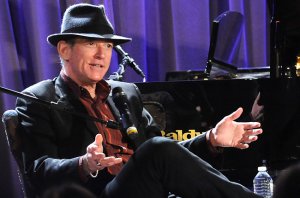 There must be something you had when
you were a big, in-demand session musician. Was it that you were in
the service of the song rather than even in the service of the
artist, and you get that whereas some others might not?
There must be something you had when
you were a big, in-demand session musician. Was it that you were in
the service of the song rather than even in the service of the
artist, and you get that whereas some others might not?
That may be it. I honestly don't know why I am considered for so many sessions. Having the feeling I have about records and liking the ones that I liked growing up maybe . . . learning from listening to the Beatles and the Rolling Stones who used the best keyboard players and very well, that were always in the service of the song. So I grew up on that and that was always the take I had when I first started playing with Tom and Mike, first in Mudcrutch and then the Heartbreakers. It was never about anything showy, it was always about showing off the song.
When I listen to the two instrumentals on the album neither is showy as you say, but each goes in a unique direction. You didn't consider doing an all-instrumental album? After all you are on Blue Note and they are rather well known for doing keyboard albums. You wanted songs out there?
The instrumentals are on their because [producer] Glyn Johns wanted them, he requested some instrumentals. So I wrote a few.
I write songs so the reason for the record was I had a lot of songs and the Heartbreakers don't need any of my songs, Tom has got that well taken care of . . .
You're the George Harrison of the group
then?
Ha! If only. Now there's a songwriter. So I had a lot of
songs so that's the reason for the record and to play instrumentals
when you've got songs just didn't make any sense to me. I never write
instrumentals. Wobbles I wrote as an instrumental, a New Orleans
flavoured instrumental but I wrote that a while back. And naturally
once we had finished the record words showed up for Wobbles so I
printed them on the sleeve and everybody can figure the melody out.
So I never considered an instrumental record because I don't write them, and because I don't have that much prowess on the keyboard. I'm a very basic player.
Okay, you get to say that and I get to disagree. As a lyric writer, do words come easy?
Refining is fun. The lyrics generally come pretty quickly or else they are going to be no good. What I've learned about writing songs is if I don't have something to say then a song is not going to show up. If there is nothing on my mind or on my heart I'm not going to have good lyrics.
I spent some time in Nashville writing with exceptionally talented professional songwriters and I wrote some good songs there, but I'm generally not that good at saying, 'Okay let's write a song' and conjuring something out of the air. The final product sounds forced to me, it sounds like a product when I do it.
So it is better for me to wait to have an idea, and then the lyrics come pretty easily and the fine tuning is just a joy.
I think there are fascinating lyrics on the album. I love Today I Took Your Picture Down and I am guessing this could have come from along time ago after your divorce. Is that a fair guess?
It's an older song but it's from long before I was married and divorced. I don't like to go into exactly what a song is because it can mean something different to everybody, but I suppose it was about coming to terms with that kind of situation.
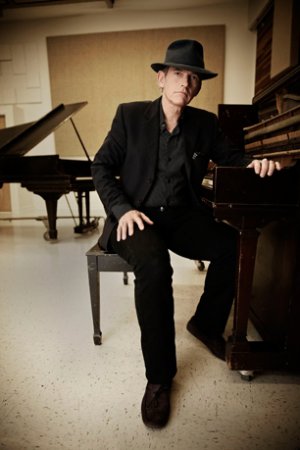 Sometimes people can put themselves
into a situation and wrote from that perspective.
Sometimes people can put themselves
into a situation and wrote from that perspective.
I did it on the record. The title track is a case in point because the guy is bad guy. The song just showed up so I don't know . . . but he sounds to me he's pretty unhinged. In traditional American songs when a guy takes a girl for a walk down by the river she's not coming back. And he says in the song, 'You ain't coming in from the cold'
I certainly don't want to cause anybody harm and I wasn't upset with anybody when the song showed up, so I suppose I can do that. They are a mystery to me and I like it that way.
It is very acerbic lyric but the music is the counterpoint. You could have gone the whole Nick Cave but you couch it in music which entices you in and then you realise the guy is a nasty piece of work.
I'm glad you caught onto that. It can go past you because the track rocks pretty hard but when I was playing a few things solo for the radio at the Grammy museum I was playing it, not slowly but quietly on electric guitar. And it comes across with an entirely different meaning when you do it like that, it's more Nick Cave.
I wouldn't want to run into that guy. But the song showed up and I felt it was my duty to get it down.
I'm given to understand Glyn Johns gave you a nudge to do this.
He'd given me a nudge years ago then mentioned it again more recently and I think I was ready to take him up on it. I felt I had enough songs and they were good enough, and I also felt time's a-wastin' so let's give the songs a chance. It wasn't about me seeking the spotlight. It was about me thinking they were good songs which deserved a life and airing.
Were you in studio for a while or was reasonably painless and quite fast, it sounds very immediate.
It was painless and lightning fast. It was 11 days entirely, including the mixing of the record. We recorded for six maybe seven days and then Glyn mixed for four.
When I look at who is on it they all know how to play. Even that tambourine player.
Yeah, the tambourine player got it immediately. Yeah, they can all play and they are people who can listen. They are all people who can listen, write songs and understand songs.
And people you've known for a long time.
Yeah, we are all friends so it was painless because Glyn is such a good producer and has a good presence and guides things so well. So it was literally like a Sunday night at my house, except Sunday night at my house everybody will play some songs and we'll play a whole lot of covers. It was largely the same cast of characters except we moved to a recordings studio and they were all my songs.
So Sunday barbecues at your place is really where we should be.
Pretty much.
I've always liked Corrina Corrina which I call a Dylan song although I know it's not. What drew you to that old one?
Glyn had said, 'Let's do a couple of covers' and I thought he didn't like my songs. But then I realised he had a good idea and we should do a couple of covers. He was over at my house one Sunday night and we were playing songs and Gillian [Welch] and David [Rawlings] were there and we just threw out Corrina Corrina. I thought it was lovely the way David and Gillian played it, so I thought let's cut that so I could capture them and have an excuse to play it with them.
I get a sense of a great democracy. Your name is on the cover but you just also want to hear these other people play.
The truth is if it was a smaller band then I think the cover would have been really like an old Blue Note cover where they have the name of the primary artist and the names of the people in the quartet or whatever. But there wouldn't have been room and I didn't want to slight anybody who was on the album. It would have looked like a Miles [Davis] record, not that I am putting myself in that company, do not misunderstand. I know my place.
Duquesne Whistle is a great song but you have an interesting arrangement of it. I imagine it was a song you could almost play a different way every time. Why that particular arrangement?
It just felt right when we started playing it . I'd monkeyed with a little at home before I brought it in the studio and thought, let's just do it a little bit barrelhouse stride and base it around piano instead of guitars. We took out a couple of instrumental passages Bob has in and unfortunately had to take out a verse because the way we had done it meant it would be too long. But it is Bob Dylan and Robert Hunter writing lovely lyrics with a great melody and lovely swing to it. And again, as with Corrina, what fun it would be to play, and play with Gillian and David.
They came down and we cut Corrina, Blonde Girl in a Blue Dress and Duquesne all in a row.
Are you going out paying this album?
I have three nights Largo in LA, a great musical hub where we all hang out, but I've never ben the guy who sings songs for an hour.
Are you nervous?
I'm curious about being the band leader so I'm going to treat it lightly and loosely, I don't have any desire to go out and be the dynamic frontman. It isn't in my nature or set of talents, I just want to go out and show off the songs.
I'm a band guy and have always been a band guy. Tom is the front guy in the Heartbreakers. I don't know if I'd say it a democracy but it is a very benevolent dictatorship.
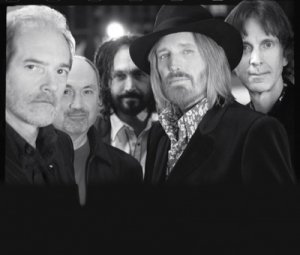 A few years ago there was the Mudcrutch
album when the band briefly reformed (right) and I got the sense that must have been a whole lot of fun
because if nothing else it was lowered expectation, it wasn't a Petty
and the Heartbreakers album.
A few years ago there was the Mudcrutch
album when the band briefly reformed (right) and I got the sense that must have been a whole lot of fun
because if nothing else it was lowered expectation, it wasn't a Petty
and the Heartbreakers album.
Yes, that was very enjoyable. Making my record was similar to making the Mudcrutch record. It was a bunch of friends hanging out and having fun. I saw Mudcrutch when I was 17 years old and fell in love with it and started going to all their gigs . . . and eventually wound up in the band. So just as a fan of Mudcrutch hearing the band back together was enough for me, whether I played on it or not.
When they were saying they wanted to make a Mudcrutch record I wasn't sure I should be on it because they were a band before I joined, and they were stellar.
Final one, the Heartbreakers album?
I think we're very close to done, we haven't finished recording but we are very close. And after doing my little shows that is the priority now.

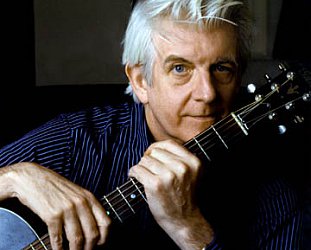

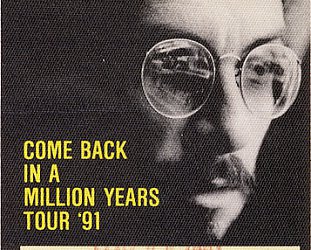
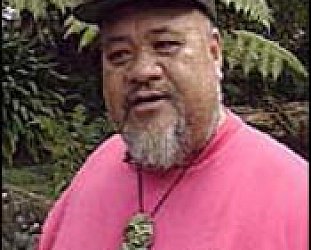
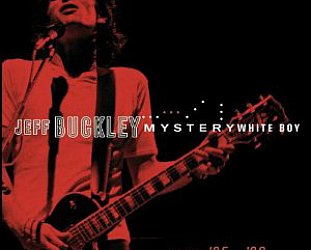

Patrick - May 14, 2014
Great stuff Graham, the breadth of music and criticism you present on Elsewhere keeps me coming back to be turned on to some terrific, previously unknown (to me) gems in recent years. Now Benmont Tench, Angel Olsen and Black Keys - inspired to delve further!
Savepost a comment